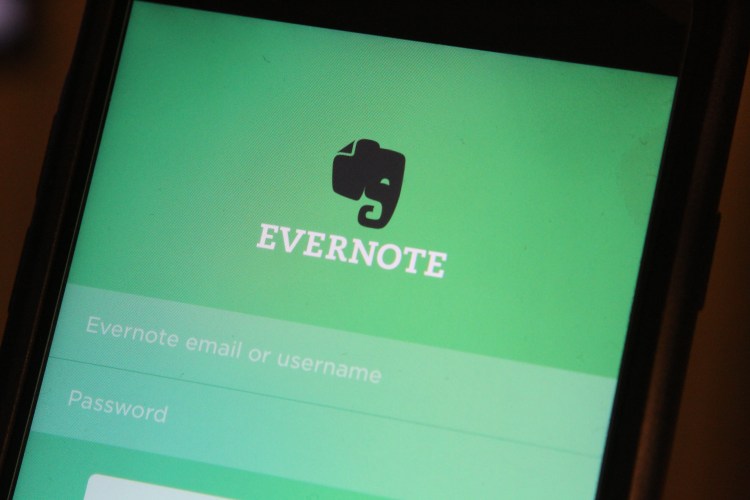Want smarter insights in your inbox? Sign up for our weekly newsletters to get only what matters to enterprise AI, data, and security leaders. Subscribe Now
Popular note-taking app Evernote caused a huge stink this week when news emerged that it was making notable changes to its privacy policy — one of which would permit some employees to view the content of users’ notes — as the company works on new features that rely on machine-learning technology.
The new privacy policy comes into effect from January 23, and even if users choose to opt out, they cannot opt out of employees looking at their content “for other reasons stated in our Privacy Policy,” of which there are quite a few — including the somewhat vague “to maintain and improve the service.”
At any rate, Evernote CEO Chris O’Neill, who replaced cofounder and former CEO Phil Libin last year, has now stepped in to pour cold water on the furor and further explain the changes. He’s quick to point out that any snippets of users’ notes that are viewed are anonymized, while any personal information will “be masked from the employee,” though he doesn’t stipulate how the system would know which data includes personal information — machines aren’t that reliable yet. He says:
We believe we can make our users even more productive with technologies such as machine learning that will allow you to automate functions you now have to do manually, like creating to-do lists or putting together travel itineraries. Machine learning might sound like science fiction where computers make their own decisions. In reality, machines still need a human to check on them. To get there, Evernote data scientists need to do spot checks as they develop the technology.
If you choose to participate in these experimental features, you’ll enjoy a more personalized experience. Select Evernote employees may see random content to ensure the features are working properly but they won’t know who it belongs to. They’ll only see the snippet they’re checking. Not only that, but if a machine identifies any personal information, it will mask it from the employee.
O’Neill also apologized for poorly communicating the original privacy policy message. “We recently announced an update to Evernote’s privacy policy that we communicated poorly, and it resulted in some understandable confusion,” he said.
AI Scaling Hits Its Limits
Power caps, rising token costs, and inference delays are reshaping enterprise AI. Join our exclusive salon to discover how top teams are:
- Turning energy into a strategic advantage
- Architecting efficient inference for real throughput gains
- Unlocking competitive ROI with sustainable AI systems
Secure your spot to stay ahead: https://bit.ly/4mwGngO
But for many people, the new privacy policy announcement wasn’t confusing, it just served to highlight the company’s existing privacy policy, which is more than a little vague in terms of when and how its employees can observe users’ content. Evernote’s original announcement may well have been poorly communicated, insofar as it didn’t do a good enough job of highlighting the fact that users’ content would be anonymized when accessed by employees, but this doesn’t address the bigger picture.
The age-old “poor communication” leading to “confusion” explanation is one that permeates nearly every pseudo-apology from major technology companies.
In 2014, some Facebook users discovered that the social network had been toying with their emotions by deliberately feeding them gloomy and depressing information. Sheryl Sandberg, Facebook’s COO, issued an apology of sorts, saying:
It was poorly communicated … for that communication we apologize … we never meant to upset you.
When Uber landed in hot water in France over its operations, which led to violent protests from taxi drivers, the company said:
It is heartbreaking to see the violence in the streets when we know that taxi drivers can earn more on the Uber platform. It’s why we need to do a better job explaining and communicating the advantages of Uber to all drivers.
When Twitter tried to reset the clock with third-party developers over the way it had treated them, CEO and cofounder Jack Dorsey said:
Somewhere along the line, our relationship with developers got confusing, unpredictable. We want to come to you today and apologize for the confusion.
The reality of the situation Evernote faces is that some people will jump ship to alternative services, but the likelihood is that most people who don’t follow the day-to-day turbulence that is the technology news industry, and those who simply don’t read changes to privacy policies (most people), will stay put.
Whatever you do, you can rest easy knowing that Evernote apologizes “for any angst we may have caused.”


